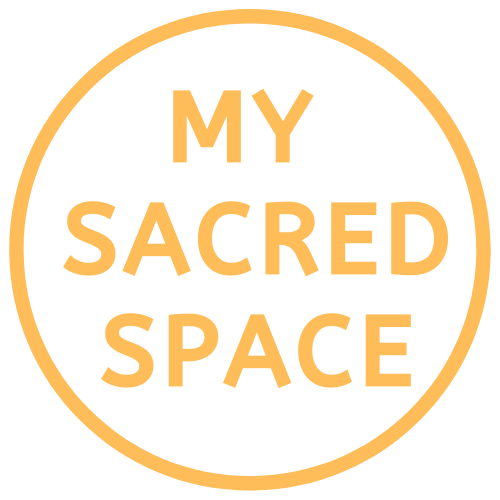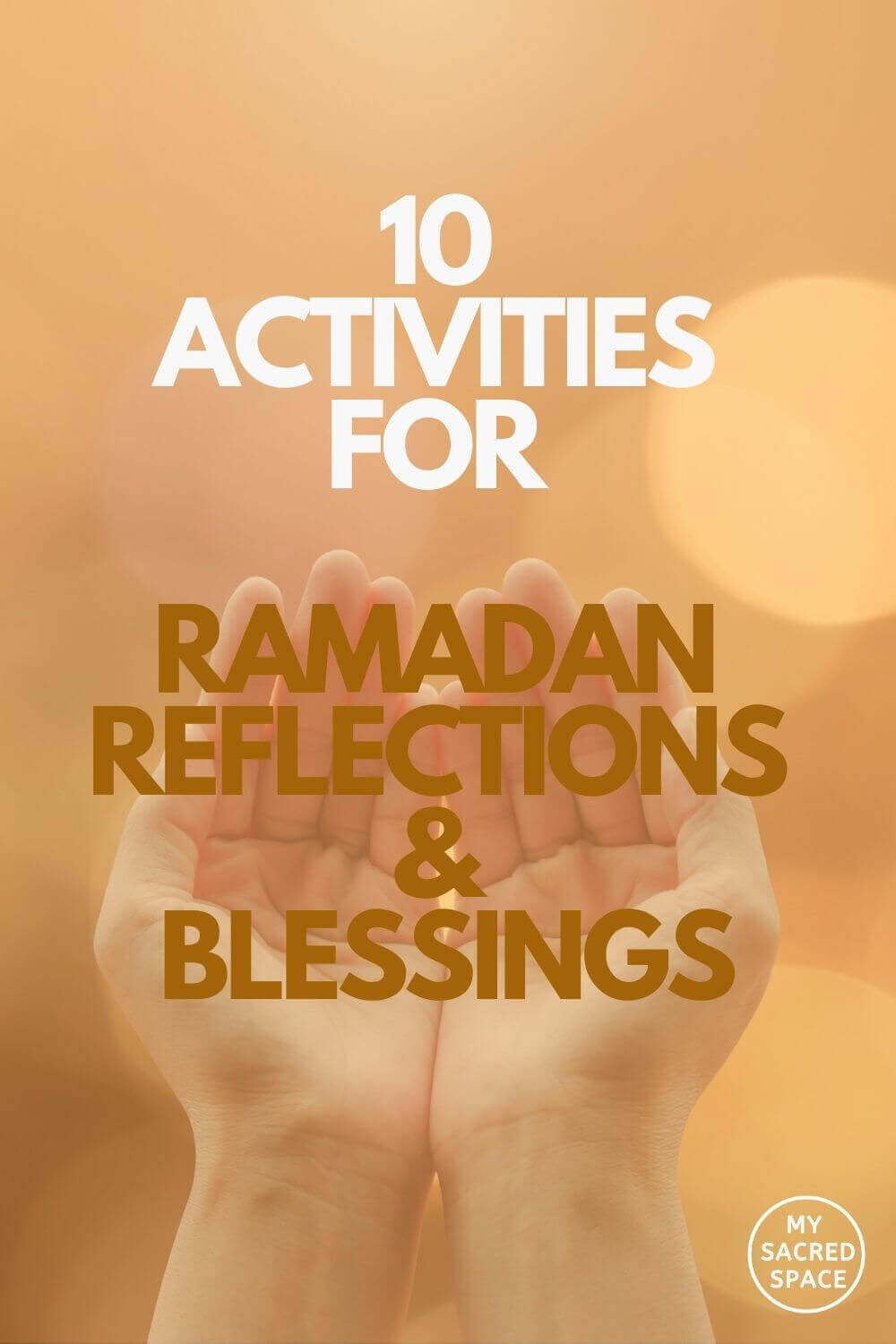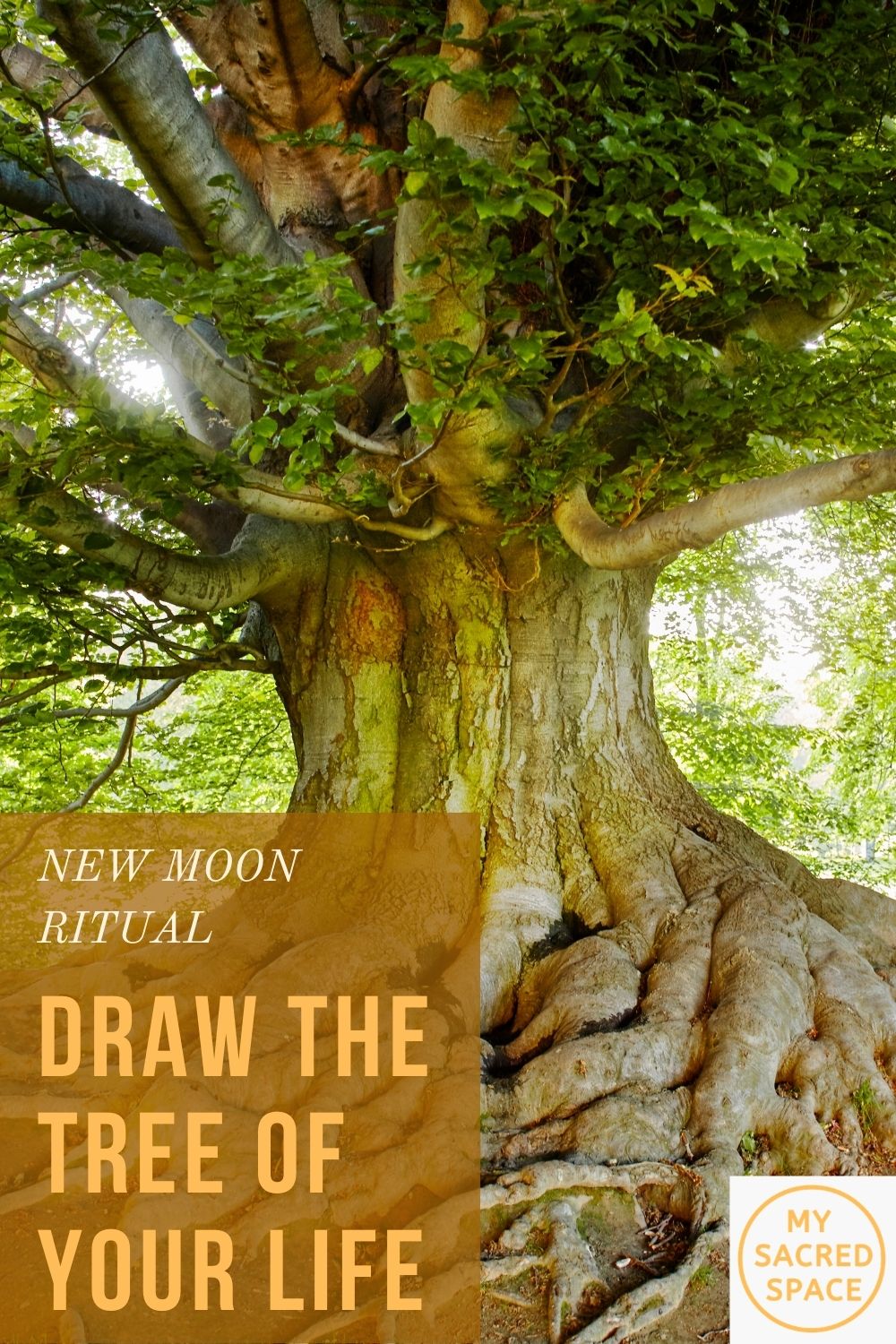What activities you will do in Ramadan if you see Ramadan as a journey to an unknown for reaching Union?
We are here to know ourselves. One step at a time. Once we know ourselves, we will know God. Once we know God, we will know ourselves.
“And indeed, We have created man, and We know whatever thoughts his inner self develops, and We are closer to him than (his) jugular vein.”
Ramadan is a holy month providing us the light, we need in this journey of finding ourselves, so finding God.
I have prepared for you and for me the activities to invite you to make the most of Ramadan, the sultan of 11 months!
If you would like to how to get prepared for Ramadan, take a look at this blog post here.
Ramadan Routine: Taking four pills
In the blog post; Ramadan symbols and why we celebrate it, I have talked about taking 4 pills from the quote of Bülent Rauf, one of the founders of the Beshara School for Esoteric Education and the first president of Muhyiddin Ibn Arabi Society.
“Four Pills
Everything is from one thing. There is nothing but that one thing. There is no way of merging with, having a relationship, or returning to that thing without doing anything.
That is why you must become something first, then reach for it. You can grasp it most simply. There are four pills you must swallow to do this.
First, you must make sure that there is one absolute, it is not possible to have two absolutes.
Second, you must keep everything clean.
Third, you should not hurt anyone.
And fourth, you must help everyone.
After taking these four pills, it is up to you to find your way.”
* Absolute: Existing by itself, independent.
This concept of Rauf of taking 4 pills is perfect to start this post as it both talk about how to take 4 pills and then also commenting on finding your way.
My intention is also to talk about how I can take these 4 pills and then how I can find my way during Ramadan.
Get Our Ramadan E-Book
Live Ramadan As a Journey of Love
YES, I WANT
Doing rituals in “here and now”
Before starting to talk about the things we can do to take four pills, I also would like to remind you apart from the poem of Yunus Emre – Turkish folk poet and Sufi mystic
“Sharia and tariqa are a path for those who are on a journey.
Haqiqa and marifa is inside the moment.”
In Sufism there are 4 doors:
- Sharia: legal path
- Tariqa: methodic‑esoteric path.
- Haqiqa: mystical truth/verity.
- Ma’rifa: mystical knowledge & awareness, mysticism.
A metaphor to explain the meaning of these 4 doors involves pearl gathering. Shari’a is the boat; tariqa is represented by the pearl gatherer’s rowing and diving; haqiqa is the pearl, and ma’rifa is the gift to see the true pearl perpetually.
With this poem of Yunus, I want to remind you of our agreement for the preparation of Ramadan (as you can read more here) simplicity & austerity: Focusing on being more than doing. I kindly invite you to remember the importance of doing these Islamic rituals by heart and being in the moment, by being the child of the moment as the dervishes.
Now we can start.
Conscious Prayer
Salat in Arabic or namaz in Turkish is one of the 5 pillars of Islam as you can see in Quran here.
“And bid thy people pray and persevere therein. [But remember:] We do not ask thee to provide sustenance [for Us]: it is We who provide sustenance for thee. And the future belongs to the God-conscious.”
During this Ramadan, you can try your best to do your prayers slowly and being in the moment.
Before the prayer, while you are doing the washing ritual of wudu (“purification”) can you do it consciously? Just doing wudu, nothing else.
While putting your intention at the beginning of the prayer, really feeling it, during the prayer while saying different verses from Quran really understanding them and maybe adding some new to every day, those that you feel connected to.
At the end of your prayers instead of standing up quickly, you can listen deep inside to see what comes. You can gently let your questions and your wishes with your prayers.
Conscious Fasting
This Ramadan, you can do different types of fasting in addition to the most typical one of not eating from dawn to sunset.
“0 ye who believe! prescribed unto you is fasting even as it was prescribed unto those before you. that haply you may become God-conscious (ii. 183).”
The fasting of thoughts
This Ramadan you can intend to be aware of your thoughts. When you catch yourself thinking a negative thought, you can simply say: ‘I forgive myself for thinking such a thought. I thank myself for showing me how I do not want to be. I choose to change my way of thinking to more peace…Here you re-write your though with a more loving way.”
Let’s say you catch yourself envying the success of your friend. You simply whisper to yourself: “I forgive myself for envying my friend. I thank myself for showing me how I do not want to be. I choose to change my way of thinking to more peace: I feel happy for my friend. I believe we have enough abundance in the world and my friend is showing me what I am capable of, the truth about my inner potential.”
The fasting of speech
In all spiritual practices, it is emphasized again and again, the importance of your speech.
“Before speaking ask yourself.
Is it true?
Is it necessary?
Is it kind?”
During this Ramadan can you also do a fast of speech?
The fasting of eyes
During this Ramadan can you focus on beauty. Instead of thinking that I will do and then I will find, can you see the artist in all the art of creation around you?
Slowing down so realizing all those colorful flowers, the smell of the spring, the texture of different vegetables and fruits, the shining eyes of the children, their joy while they are inviting you to play.
The fasting of not eating
Slow down each time more and be conscious. In sahur, enjoy each bite and freshness of the water. Feel the silence and be aware of how it feels reading Quran in the middle of the night alone.
Wait until sunrise and feel gratitude for the bright new day.
Before iftar come and sit down some minutes before. Stay in silence for a while. Make a meal prayer from your heart. Smell the freshness of the afternoon and say thanks to the Sun for all the light and say thanks to God for being alive.
Enjoy the taste of the food and the water.
Try not to feel your stomach more than 2/3, so that you can have some time for self-reflection and self-inquiry in your sacred space. You can read more about Ramadan reflections here.
Practicing dhikr (Zikir)
Dhikr means remembrance. It makes so much sense to me. Those moments where I can sense and know the truth of Love, the feeling I have is remembering not learning.
We, as human beings, have incredible ability to forget which I guess is one of the mechanisms of survival. Still this ability to forget comes with forgetting our true source, Love.
This Ramadan you can practice Dhikr, via tasbih, or simply repeating the names of God, prayers, or Hadith, whatever you feel like.
Combining Dhikr with a daily routine
You can also combine this with a routine you have. For example, I almost daily make laundry, so I have to hang laundry. At those times that I hang laundry, I simply come to a moment and make a Dhikr of the name of God, Allah via inside.
Sometimes after my daily meditations, I also do some Dhikr, with the movement of the head, from right to left, finalizing on the heart. During these Dhikrs I lived quite intense and beautiful experiences, the feeling was similar to experience nothingness, no connection, and traveling in space.
Those moments where you feel strong negative feelings such as anxiety, frustration, and anger, you can also do Dhikr gently from inside. For example, repeating the name of God.
“It is the remembrance of ALLAH that hearts can find comfort.”
At the end of the day after Iftar, it can be a good idea to spend some time in your sacred space and reflecting on your day for some minutes. At this moment, you can do various words as Dhikrs such as Bismillah (reminding the compassion), Alhamdulillah (reminding the gratitude), Estagfurullah (reminding the asking of forgiveness), and Subhanallah (reminding the surrender and wander).
You can see here in this post, how I have learned to use these words in my daily life, from a trader in Granada.
Creating a relationship with Quran
Last year during Ramadan, I daily read Quran, which was an interesting experience. I saw myself with a lot of judgment and realizing them and letting them go.
Then one day my dream sent me to a specific Quran page by symbolizing its number through the age of a person in my dream. It had been one of those amazing experiences in my spiritual learning. I was so amazed. Check the full story here.
There I embodied that Quran is a magic book. It is speaking with you. Its guidance is so dynamic and so much at the moment.
Trust your intuition and this Ramadan and start to create a relationship with Quran whatever it is for you. You can prefer reading it daily to finish reading all the Quran during Ramadan or reading as much as you can by focusing on understanding the meaning and interpretation.
Zakat and sadaqah
Zakat means ‘that purifies’ and it is giving from your income %2.5, to those who are in need, in the community where your money comes from. Zakat is one of the 5 pillars of Islam.
Zakat is given secretly, without making it obvious that you are the one who is giving.
It is preventing the accumulation and making it possible to remember to surrender and being humble and remembering that we are not the real owner of the things and that we are just passengers passing by.
Sadaqah is the act of giving your money to those in need. In the old times, dervishes were traveling without any money-with full surrender and people were supporting them with their money-sadaqah. The one who was giving was in appreciation to the one who was receiving, as he was accepting this sadaqah and letting him be in a position of the giver.
Zakat and sadaqah as giving from yourself
Ibn Arabi in his book The Sufis of Andalucia is talking about a woman that he was considering as her teacher, that she did not have any belongings at all, and she was living in full trust in God. Ibn Arabi built a little hut for her as he was concerned about her, but she did not need anything as she was receiving whatever she exactly needs all the time.
This Ramadan you can think about zakat and sadaqah from a non-materialistic view as well. Think about how you can help other people around you? Think about all your gifts, talents, and experiences that you can give to others from you to make their life easier and more beautiful. Make a list of those things and every day try to realize one.
Make giving a game, a joyful activity. Check here the blog posts to get more ideas about being a secret angel for others and ideas of good deeds for Ramadan.
Conclusion
So, you have prepared for Ramadan to welcome this blessing month and then you took the four pills to get yourself as empty as possible so that you can become nothing and from nothing, a creation could start.
You can read here, next steps after taking 4 pills, Ramadan reflections, and living life as worship. As Bulent Rauf said,
“After taking these four pills, it is up to you to find your way”
Ramadan Mubarek!
Below is a Pinterest friendly photo…. so you can pin it to your Ramadan Board!





